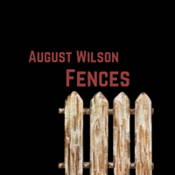
Overview
Synopsis
The sixth Play in August Wilson’s Pittsburgh Cycle, Fences takes place in 1957 in what is assumed to be Pittsburgh, Pennsylvania. The play follows Troy Maxson, a 53-year-old man who struggles to provide for his wife and son in a time when slavery is over but the civil rights movement has still not come to fruition. Troy used to be an amazing baseball player, but was not able to make it to the Major Leagues due to the color of his skin. Troy has had to settle into the life of being a trash collector and barely scraping by, and this causes a lot of turmoil and frustration, especially in his relationships. Wilson’s play deals with dreams deferred and what it means to be a man, as well as covering themes of family and loyalty. Most notably, we see a marriage that looks loving and successful at the outset begin to fall apart as Troy’s lack of self-respect starts to crumble everything around him.
Show Information
Context
Fences is the sixth play in August Wilson’s Pittsburgh Cycle. Premiering in 1987 at the 46th St. Theatre, directed by Lloyd Richards and featuring James Earl Jones as Troy, Fences went on to win the Tony Award for Best Play, Best Performance by a Leading Actor in a Play (Jones), Best Performance by a Featured Actress in a Play (Mary Alice) and Best Direction of a Play (Richards). It also won Drama Desk Awards for Outstanding New Play, Outstanding Actor in a Play and Outstanding Featured
to read the context for Fences and to unlock other amazing theatre resources!Plot
Act One
The play begins with Troy and his friend Bono entering into Troy’s yard after a long day at work as trash collectors. It is Friday, which is payday, and they have started their weekly ritual of drinking and laughing and telling stories over a bottle of alcohol. It is revealed that Troy recently asked their white boss, Mr. Rand, why he only lets white men drive the garbage trucks, while the black men stay in the back and lift the trash. When Mr. Rand told him to take it up with
to read the plot for Fences and to unlock other amazing theatre resources!Characters
| Name | Part Size | Gender | Vocal Part |
|---|---|---|---|
|
Lead |
Male |
Spoken |
|
|
Lead |
Female |
Spoken |
|
|
Lead |
Male |
Spoken |
|
|
Supporting |
Male |
Spoken |
|
|
Supporting |
Male |
Spoken |
|
|
Featured |
Male |
Spoken |
|
|
Featured |
Female |
Spoken |
Songs
A song with an asterisk (*) before the title indicates a dance number; a character listed in a song with an asterisk (*) by the character's name indicates that the character exclusively serves as a dancer in this song, which is sung by other characters.
Monologues
Scenes
Key Terms
A theme in theatre representing hope, success, and its disillusionment, particularly in realist and symbolist plays.
A cultural movement emphasizing Black pride and political empowerment, reflected in African-American theatre of the 1960s and 70s.
African-American baseball leagues sometimes dramatized in plays to explore racial segregation and cultural pride.
Videos
Quizzes
Themes, Symbols & Motifs
Sorry! We do not currently have learning modules for this guide.
Quote Analysis
Sorry! We do not currently have learning modules for this guide.
